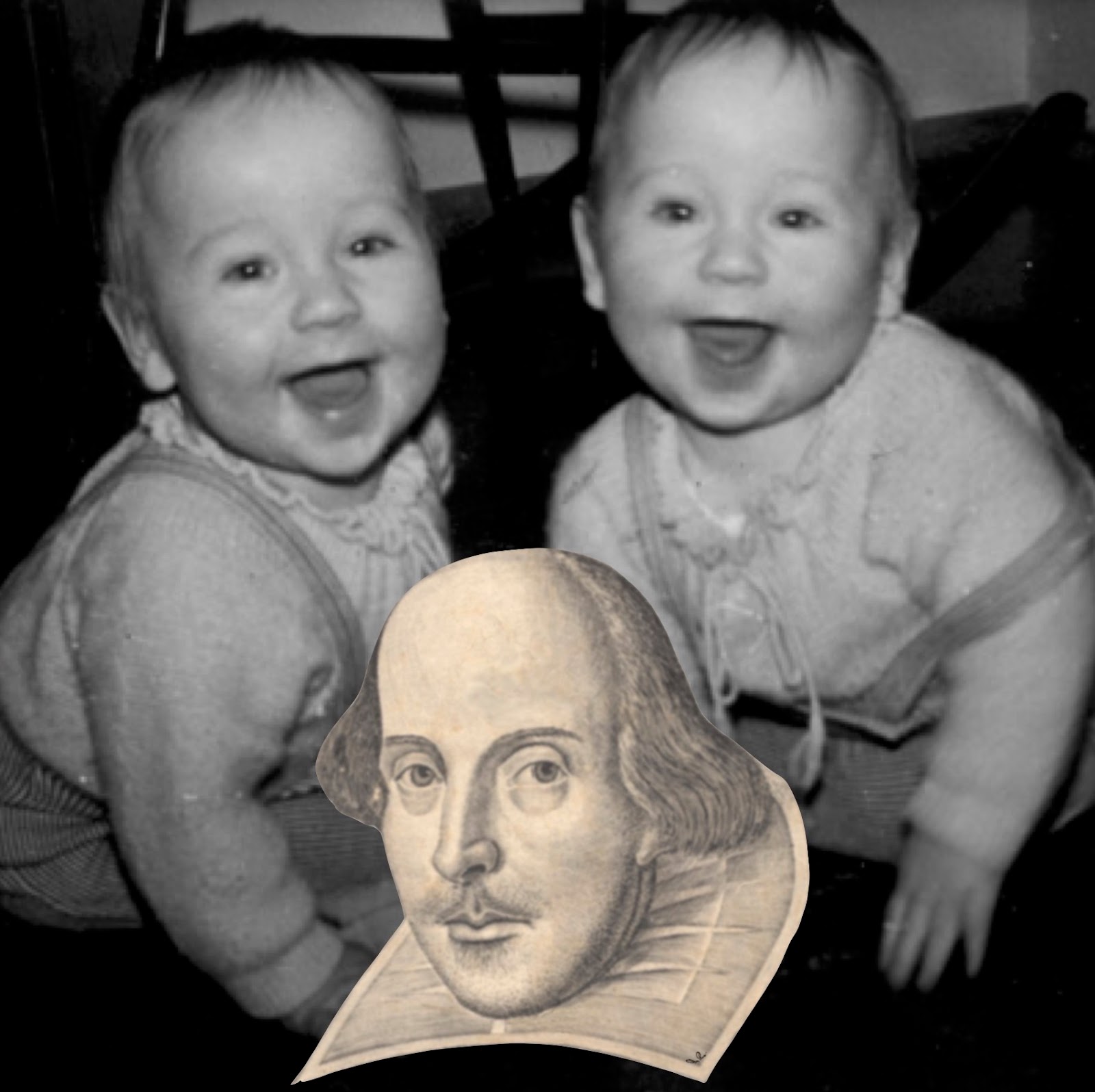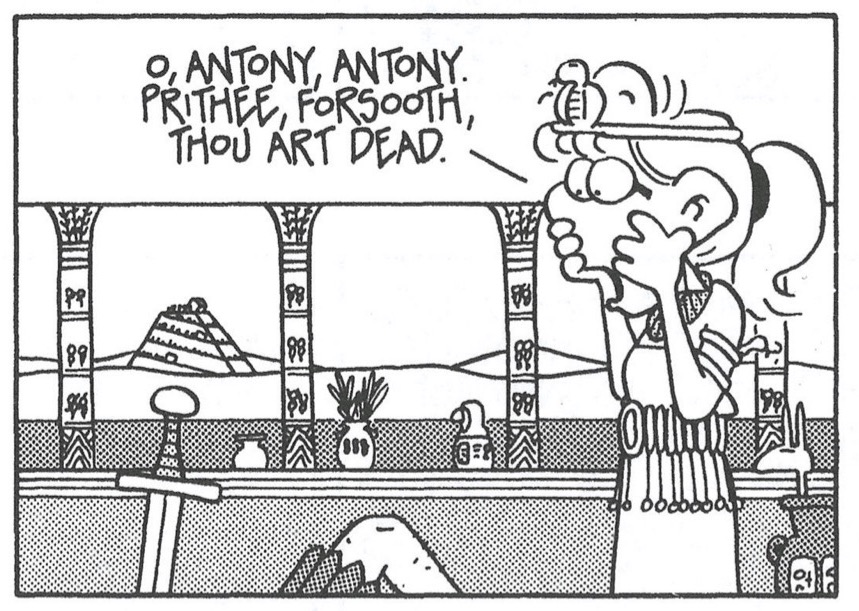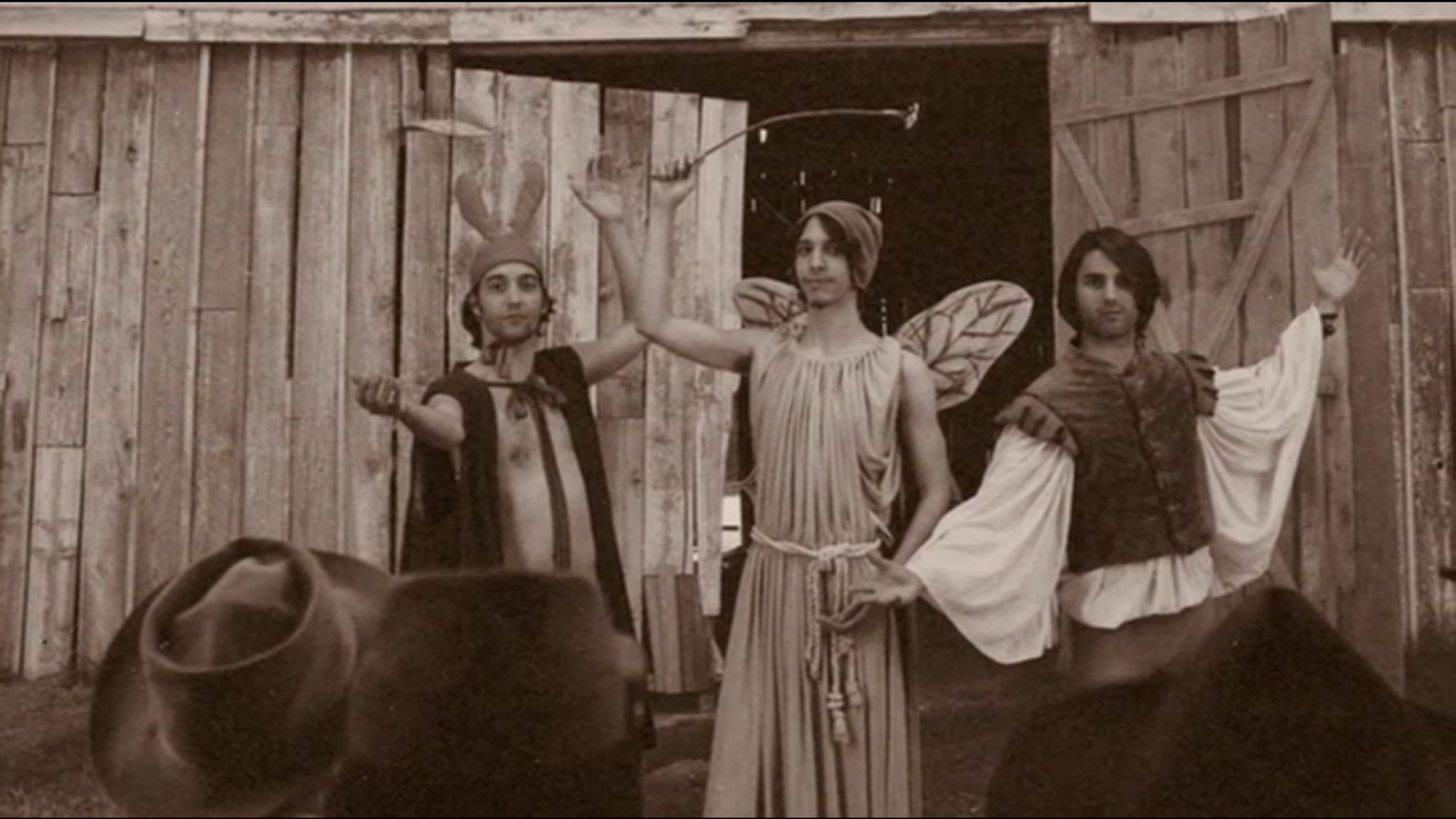The image here is of the set of the Great River Shakespeare Festival's recent production of As You Like It. It embodies and illustrates Jaques' most famous line: "All the world's a stage."
It's also the Great River Shakespeare Festival's vision of Jan Kott or Peter Brook's idea of the stage as an empty canvas.
A canvas or a stage can be filled with, of course, anything. The GRSF fills theirs with wonder.
The 2023 season is over, so these comments on the GRSF's As You Like It are only promotional in the sense that I want everyone to block out room next summer for the 2024 season. Because of that, I won't be providing a detailed review. Instead, I want to tell you about some of the things the GRSF troupe put on that blank stage.
Falling in Love
There's [Spoiler!] a lot of falling in love in the play. Every time someone fell in love—whether upon first meeting, as with Orlando and Rosalind, or after a long and roundabout journey, as with Phoebe and Silvius—the lighting would change, the actors would all freeze, someone would ring a handbell, and one actor would sing "Love!" in a bright, clear voice. Every time someone fell in love, it was absolutely ridiculous. And it was utterly believable.
Wrestling
I adored the scenes with Charles the Wrestler. First, Christopher Gerson created a preposterous persona for the character. Before the action started, his mustache was actually introduced separately. While watching the show, I thought of a mustachioed Hulk Hogan, but, really, Shawn Michaels (The Heartbreak Kid) was the inspiration.
And it was hilarious. Charles had this obnoxious (and thoroughly enjoyable) chant that he would break into at the slightest provocation: "I . . . am . . . Charles! I . . . am . . . Charles!"
The wrestling itself was somewhat reminiscent of early WWF matches. They achieved this effect by frequently moving in slow-motion. At first, it would be a slow-motion punch that was blocked or ducked. But then a couple of the other actors moved behind Charles, and, on the "Charles" of his chant, they lifted him into the air so that he seemed to leap from one edge of the stage to the other to deliver a powerful punch or kick to Orlando. When [Spoiler!] Charles is defeated, he falls in slow motion to the mat and (and I was deeply impressed by the technical prowess needed to carry this off) bounced in slow motion several times.
Seven Ages
Jaques' "Seven Ages" speech has become something of a set piece, I suppose. The difficulty is to try to work it organically into the performance. For example, having Jaques step forward to downstage center and hitting him with a spotlight would call even greater attention to a well-known speech.
This production overcame the first difficulty. It seemed to be something Jaques had been thinking over for a while. When Jaques gave his speech, moreover, he drifted upstage and then sat down. That movement puzzled me at first, but it worked to integrate the speech into the performance.
Another difficult is that the speech can be something of a downer. The seventh age ("Sans teeth, sans eyes, sans taste, sans every thing") isn't intrinsically hopeful. And if Jaques' melancholia is of the dismal variety, he can seem utterly unfeeling, especially since Old Adam enters right after that line.
This production had Jaques immediately leap to Old Adam's aid. Whatever he may talk or think, he's caring and thoughtful.
Intermission
Most productions that I've seen put the intermission at the break between Act III, scene i (Duke Frederick ordering Olivier to track down his brother, dead or alive) and Act III, scene ii (Orlando hanging terrible poetry on every tree in the forest). That means that everyone in settled in Arden and marks a shift in tone in the play.
This production waited through a good portion of Act III, ii. Orlando plants his poems, Touchstone and Celia have a chance to mock it, Rosalind learns that it's the very Orlando that she loves who is in the very forest where she is and who is writing love poems about her. We also get to see Jaques and Touchstone getting (mildly) on each other's nerves. Rosalind also has a chance to get up the nerve to talk to him. She says (to Celia), "I will speak to him, like a saucy lackey, and under the habit play the knave with him." Then, to Orlando, she says, "Do you hear, forester?" Orlando turns and
—Blackout—
[The Tom Petty song "The Waiting is the Hardest Part" starts to play.]
It was a lovely, suspenseful moment to break.
All the Nothing that Happens
If there's a commonly-voiced criticism of As You Like It, it's that a whole bunch of nothing happens in Acts III to V. Plot-wise (especially when reading the play), that's true. To this production's credit, I never felt a lull in the action at all. I was interested in everything everyone said from start to finish.
Dealing with a Difficulty
In reading the play, all the love matches seem like great fun—with the exception of Touchstone and Audrey. Touchstone seems creepy—almost predatory—and Audrey doesn't seem alert enough to know his intentions. And Touchstone seems to like it that way.
In this play, the genders were reversed. Touchstone was female and Audrey was male. For some reason, that made the comedy considerably less problematic. If she is pursuing he, it's far less icky. That meant we were much more able to enjoy the humor of those passages.
Joy
The overall feeling of the play is joy. The lovers are delighted in each other; the audience is delighted in them. In some productions, Jaques' exit casts something of a pall on an otherwise happy ending. Here, it seemed that Jaques was finding his joy there while others were finding their joy in the matrimonial celebrations.
Concluding Remarks
The 2024 schedule isn't out yet, but make a pact with me that we'll all go see whatever plays they're offering multiple times and with great enjoyment!

























































